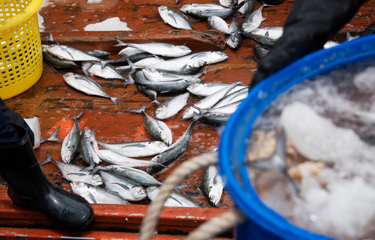A panel of federal appellate judges has upheld a lower court’s decision that ruled on NOAA Fisheries’ method for assessing bycatch in New England fisheries.
The ruling, which was announced on Friday, 12 April, in the District of Columbia chambers of the U.S. Circuit Court of Appeals, allows NOAA Fisheries to use statistical sampling to determine the amount of bycatch. It stems from a 2011 court case where judges ruled the agency did not establish methodology standards to assess the number of other species caught and discarded when harvesting selected fish.
In both instances, environmental group Oceana pursued the lawsuit.
After that decision, NOAA Fisheries decided to utilize human observers on vessels. In most cases, the observers were trained biologists who reported on a vessel’s harvest. However, since it was too expensive to place an observer on every vessel, the agency created a statistical formula that allocated the observers in a fashion that reduced bias. This enabled NOAA Fisheries officials to build fishery-wide assessments based the observers’ findings.
Oceana filed the subsequent suit in July 2015 and argued that the sampling method implemented violated the Magnuson-Stevens Act. In addition, it claimed that observers were only counting the bycatch of species under management plans within the agency.
The three judges on the panel disagreed. They said the U.S. Congress mandates that NOAA Fisheries develop a standardized reporting methodology, but how it’s done is left strictly to the agency itself.
“We affirm the District Court because the Fisheries Service has met its obligation under the Fisheries Act to establish a standardized methodology,” U.S. Circuit Judge Robert L. Wilkins wrote in the ruling.
A spokeswoman for Oceana told SeafoodSource the organization is still determining whether to proceed with an appeal.
“Science-based fisheries run on data,” Eric Bilsky, Oceana’s senior attorney, said in a statement. “Oceana will continue to fight for responsible fisheries management grounded in science and broader transparency of fishing activities, so that the public and decision makers can know about fisheries impacts, the seafood supply chain, fisheries subsidies, illegal fishing and other key issues.”







